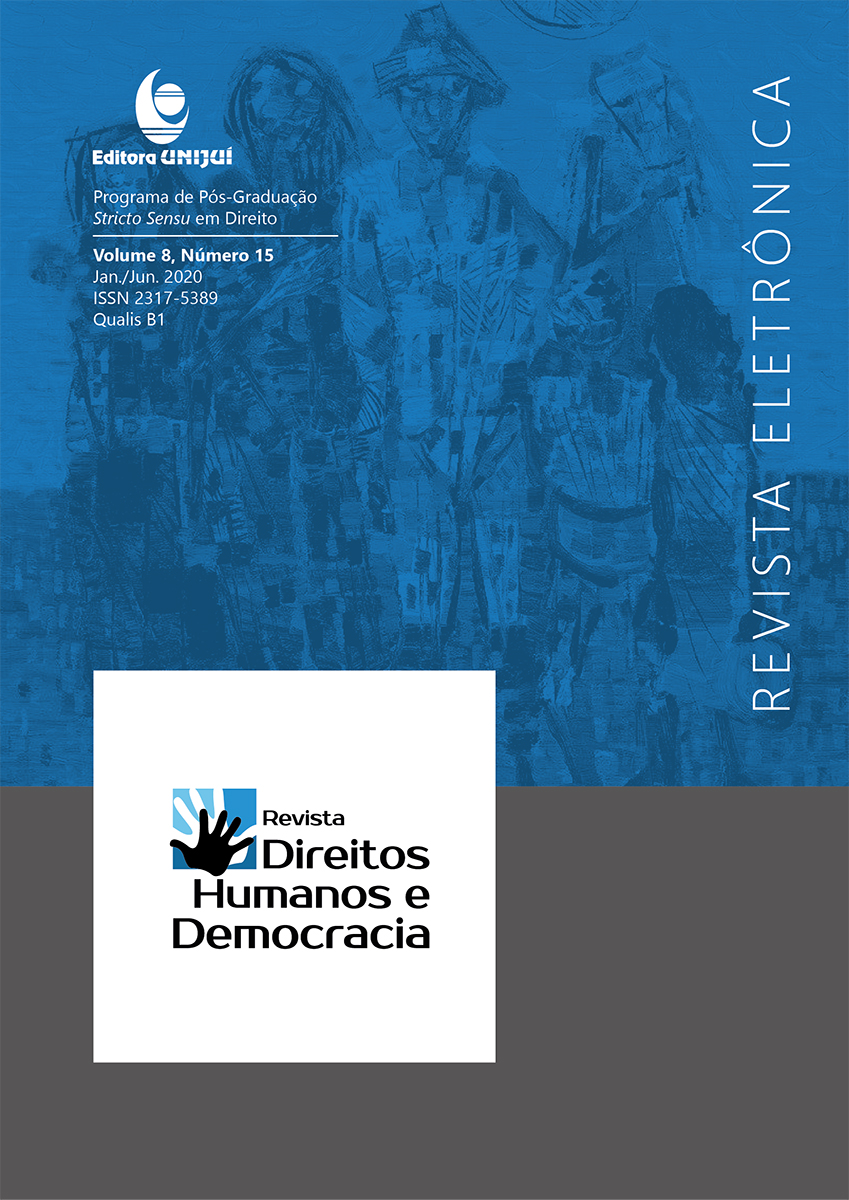DIREITOS HUMANOS EM RICOEUR
DOI:
https://doi.org/10.21527/2317-5389.2020.15.120-133Keywords:
Dignidade. Valores ético-políticos. Filosofia do Direito.Abstract
To analyze the processes of human social organization based on the question of fundamentally established and socially accepted fundamental rights in a large part of the planet and disseminated through legal texts as the Universal Declaration of Human Rights, for example, is an enterprise that goes beyond the human need for a basic structure for coexistence in society, entering into various debates on the ethical-political values involved in the human condition and to which depend his dignity. The philosophy of law, especially Ricoeur’s perspective, serves here as the north for the attempt to think human rights by the philosophical bias, in which the fundamental rights and duties are constituent and constituted by the historical individuals involved in them, who, in their capacity to act and suffer, go before their definition as a person with human rights. Therefore, in addition to discussing human rights and the principles of universalism and relativism, we study the specific contributions of Ricoeur in the reflection on the ontological and narrative foundations of human rights and the constitution of the person with human rights in that context. After exposing the issue of human rights to the ethical and political debate surrounding the theory and doctrine that constitutes the theme, we understand that the contributions of Ricoeur's philosophy surpasses the theoretical debate, constituting itself as a possible way to rethink the human rights issue.
Downloads
Published
How to Cite
Issue
Section
License
By publishing in the Revista Direitos Humanos e Democracia, authors agree to the following terms:
Articles are licensed under the Creative Commons Atribuição 4.0 Internacional (CC BY 4.0), which allows:
Share — copy and redistribute the material in any medium or format;
Adapt — remix, transform, and build upon the material for any purpose, including commercial use.
These permissions are irrevocable, provided the following terms are respected:
Attribution — authors must be properly credited, with a link to the license and indication of any modifications made;
No additional restrictions — no legal or technological measures may be applied that restrict the use permitted by the license.
Notices:
The license does not apply to elements in the public domain or covered by legal exceptions.
The license does not grant all rights required for specific uses (e.g., image rights, privacy, or moral rights).
The journal is not responsible for opinions expressed in the articles, which remain the sole responsibility of the authors. The Editor, with the support of the Editorial Committee, reserves the right to suggest or request modifications when necessary.
Only original scientific articles presenting research results of interest, not previously published or simultaneously submitted to another journal with the same purpose, will be accepted.
References to trademarks or specific products are intended solely for identification purposes and do not imply any promotional endorsement by the authors or the journal.
License Agreement: Authors retain copyright over their articles and grant the Revista Direitos Humanos e Democracia the right of first publication.













